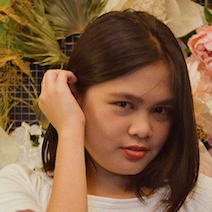

I used to hate activism.
I felt this way when I was still a student in PUP Manila. PUP is known for its activists critical of the government. Many of its students are youth leaders who often engage themselves in street rallies and protests.
True enough, my first weeks in PUP were bombarded with student protesters holding up banners and shouting, “JUNK, JUNK K-12!” I also remember rolling my eyes every time I'd hear the chant, “Ang tao, ang bayan, ngayon ay lumalaban!” I hated all of it. I was so annoyed.
But maybe the reason why I hated protests and activism back then was because I didn't understand what they were for yet. (READ: To friends, Jo Lapira was a tiny UP activist with big dreams)
A month in, my professor in one of my major subjects, Politics and Governance, told us to attend the People’s March that would be held during President Duterte’s first State of The Nation Address.
At first I firmly declined, but when she said that attending the protest meant an additional 10 points on our midterm exams, that changed my mind. Even though I knew my parents wouldn't allow me, because they hated activism too, I still went without their permission just because of those 10 points.
When we arrived at UP Diliman the day of the march, I was already annoyed. Activists gave us placards and banners with messages like “EDUCATION NOT FOR SALE!” and “NO TO EJK!” I had to convince myself to push through for the sake of my grades.
But when we started marching from UP Diliman to Batasang Pambansa, I felt something in my heart that, for once, was neither annoyance nor hatred towards these activists. (READ: Murdered activist Randy Malayao yearned for lasting peace)
While we were marching, I heard some of the stories of the marginalized sector. I also saw how everyone was united, fighting for their rights and sounding out against an unjust government. I saw the hope in their eyes, their desire for us to one day be free from the chains of oppression. I realized that I had been blind, deaf, and mute for so many years, as I was not seeing, hearing, and speaking the truth.
It was time for me to wake up from my fantasies. That day, my heart cried. Not because of annoyance and hatred, but because of sadness.
When I went home after the protest, I was still sad. After hearing the stories of oppression, poverty, and inequality, little by little I started to understand why it is that people resist – why activists and protests exist.
After joining that first protest, I no longer got annoyed whenever I saw students protesting on campus. In fact, I now enjoyed watching them. I would even smile at them.
My understanding of activism grew all the more when I took my Philosophy and Social Science subjects. As a Social Sciences major, you need to have an extensive knowledge and understanding of different social issues. One of our professors also made us watch a stage play about Martial Law that was connected to activism and rebellion. (READ: Gone too soon: 7 youth leaders killed under Martial Law)
Now, the hate that I have in my heart is no longer for activism. It is for the government – for this oppressive and fascist regime.
Since that moment that my eyes were opened to the truth, I've refused to play blind again.
Dante Alighieri said, “The darkest places in hell are reserved for those who maintain their neutrality in times of moral crisis.”
So today, I choose to resist. I choose to be an activist. – Rappler.com
Jade Veronique V. Yap is a journalism student from the University of Santo Tomas. She aspires to be a film writer.